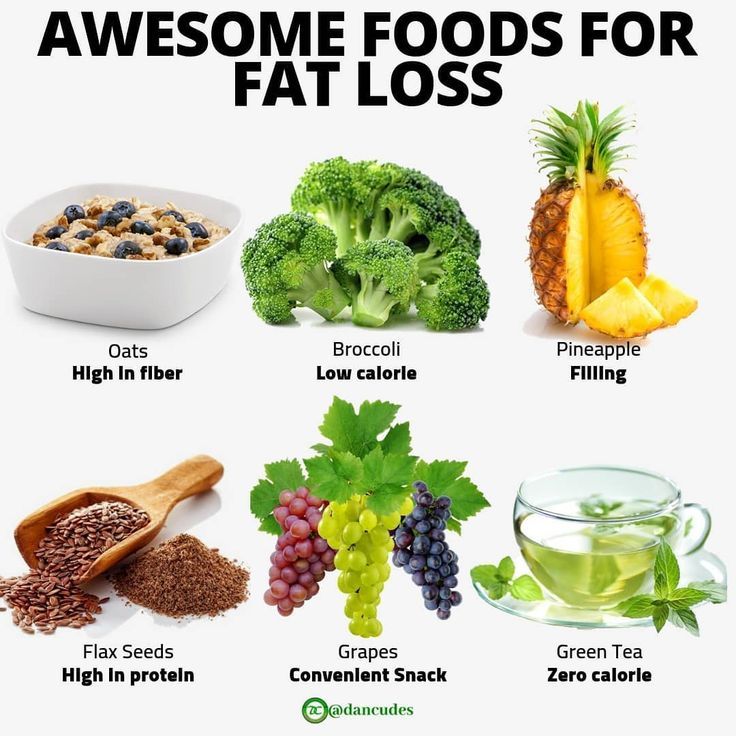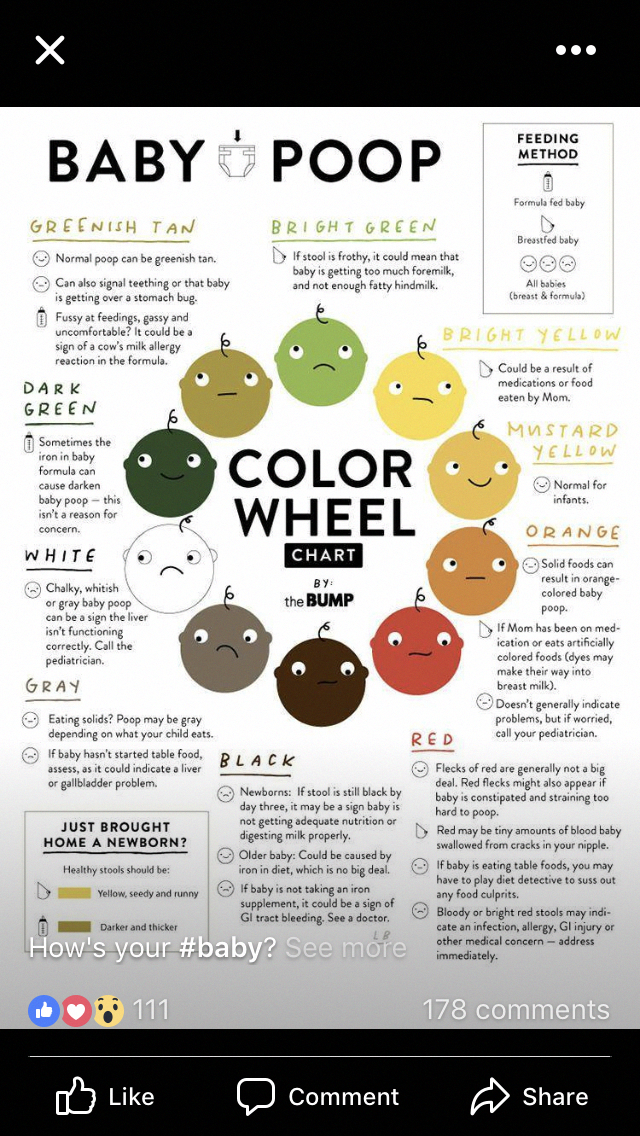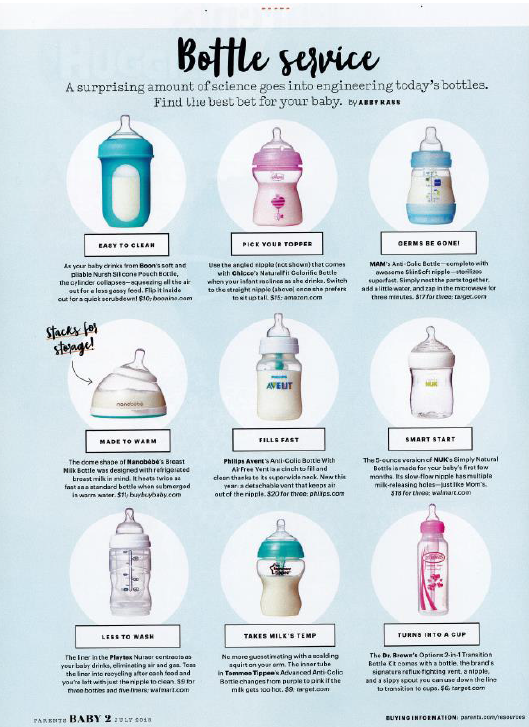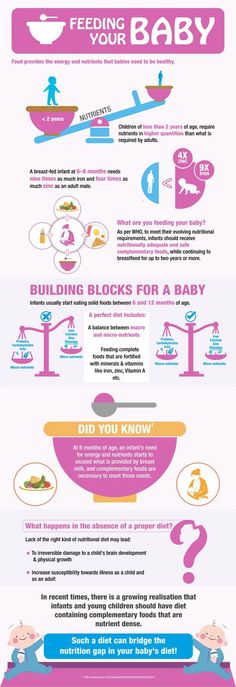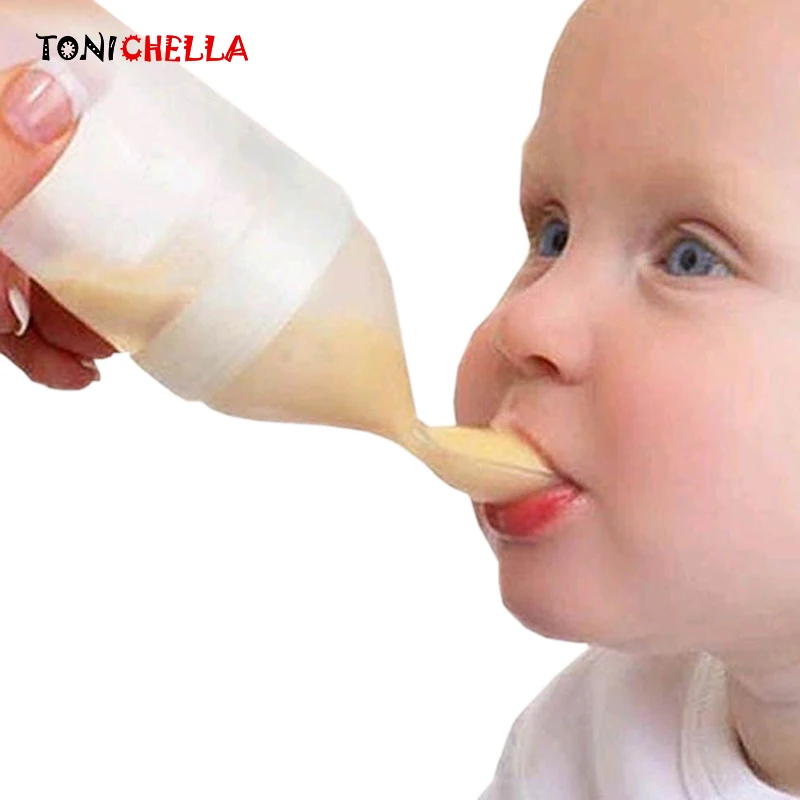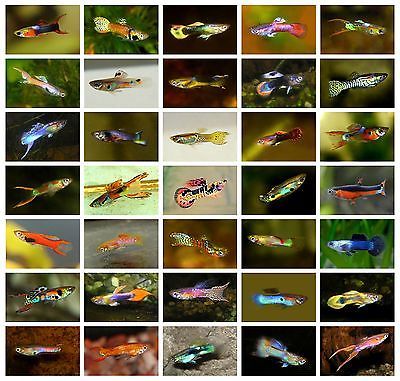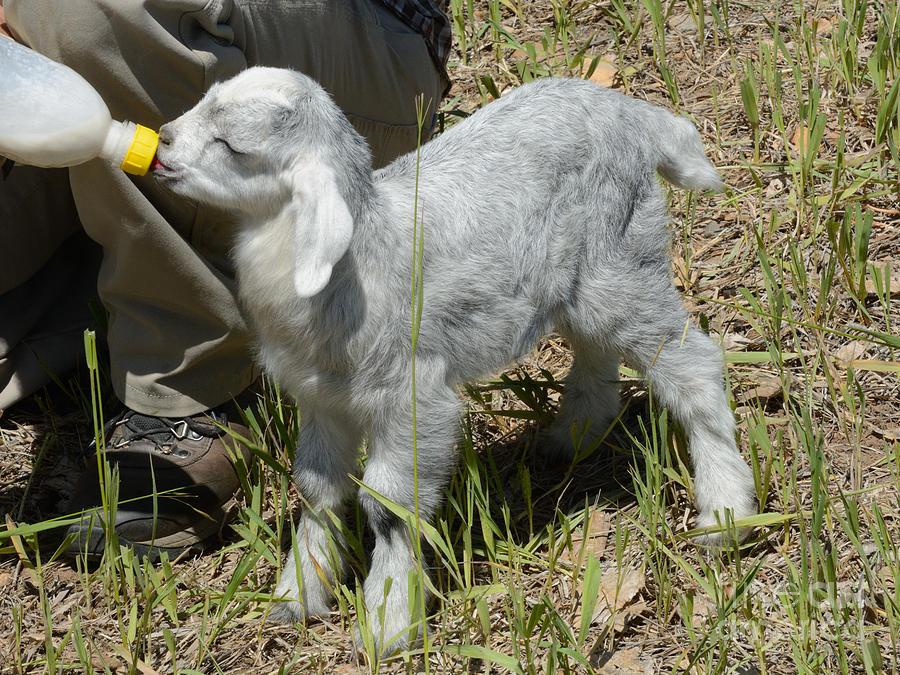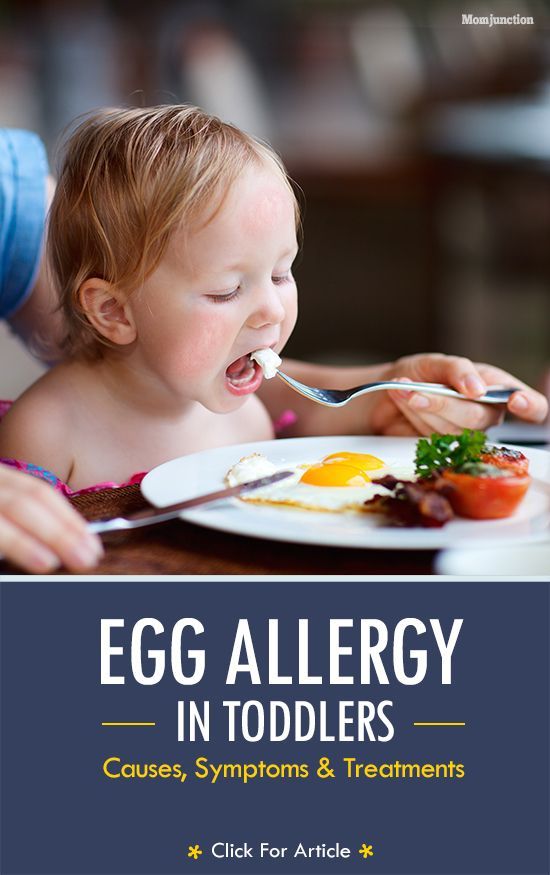Daddy feeding baby
A New Dad's Bottle-Feeding & Breastfeeding Cheat Sheet
By 6-weeks old, less than a quarter of UK babies are purely breastfed. This means that most new fathers should be doing their part to help with feeding their newborn.
-
- New dads can still play a crucial role in the feeding of a breastfed baby.
- If you have the opportunity, new dads should help with the feeds. If your baby is on breastmilk only, your partner can pump, and you can do a bottle feed with the expressed milk.
- Dads that help with feeds are more likely to build a bond with their baby early on.
- Even if your plan is to purely breastfeed your baby, you should be prepared that things may not go to plan and having formula as a backup should be your plan B.
- The recommendation is that your baby is fed only with breastmilk or formula for the first 6 months. However, when a baby is ready to begin weaning can vary.
Contents
New Dad Hacks & Tips for Feeding Your Baby
Mistakes New Dads Make with Feeding
What No One Tells New Dads About Feeding
Health and Safety for Feeding Your Baby
How Much Milk Should My Baby be Drinking?
New Dad’s FAQs About Feeding & Breastfeeding
New Dad Hacks & Tips for Feeding Your Baby
Dads need to help their partner with breastfeeding.
-
- If your partner is breastfeeding help by offering to get them anything. My wife always needed a drink without fail. Breastfeeding can make your partner thirstier than usual.
- Offer to take the baby once they’ve finished feeding to burp them.
- Cook or clean while mum is breastfeeding.
Support your partner’s decisions when it comes to breastfeeding.
-
- Dads may find themselves in either situation where they feel they need to encourage or discourage their partner’s breastfeeding.
- Remember that a dad’s role here, more than anything is to support mum.
- Whether your partner chooses to breastfeed or not is their choice. It’s their body and it can be a tough experience.
- When to stop breastfeeding is also a decision for them.
- New dads should support their partner in making these decisions, but the final decision is for mum. Do your research and provide some trustworthy evidence.
It’s ok if your baby isn’t breastfed.

-
- Despite the repetition that breastfeeding is best for the baby. The reality is that ‘fed is best’. There is still a lot of debate about the benefits of breastfeeding.
- One breastfeeding study comparing siblings concluded that the benefits of breastfeeding are inflated.
- The issue with many studies that highlight the benefits of breastmilk is that other factors such as socioeconomic aren’t considered.
- Another argument at play is simply that those that follow the advice to breastfeed, are more likely to follow other guidelines and recommendations. And that can account for some quoted long-term benefits.
- If your partner can breastfeed then I’d recommend it. Breastfeeding definitely has its advantages.
- Not having to wait for the milk to cool or ensure bottles are sterilised is a great time saver especially when you’ve got a hungry baby on your hands.
- Breastfeeding can also save you a few pennys on formula, something no new dad would likely complain about.

You can hire an ‘industrial’ breast pump to help your partner with their supply.
-
- If you’re set on breastfeeding, there are options to hire breast pumps that are more effective than typical ones sold in stores.
Try combination feeding if necessary.
-
- Combination feeding is when a baby has a diet of both breastmilk and formula.
- This may be needed if mum doesn’t have the supply, which is more common than many realise.
Dads should do at least one feed each night.
-
- When your baby is able to take a bottle, volunteer to get up for a night feed.
- This is a huge help to your partner. The likelihood is that you are waking up anyway.
- If you’re a working dad, and mum stays home, that doesn’t mean responsibility for night feeds falls on her.
For a bottle-fed baby make a plan.
-
- If you and your partner share responsibility for feeds, then have a schedule in place for feeding and making up the bottles.
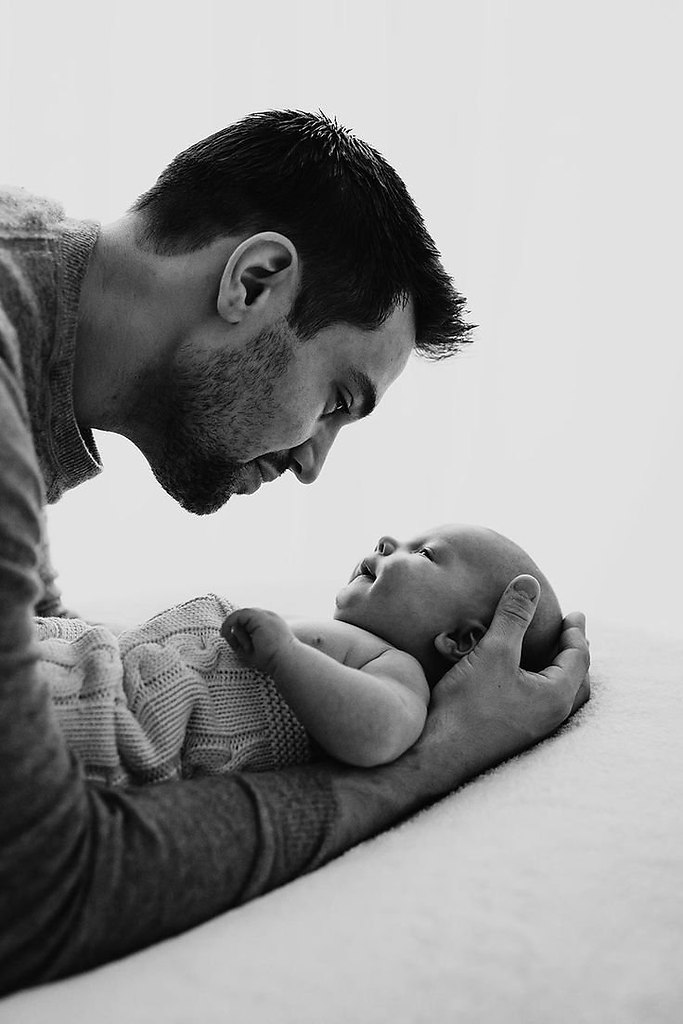
- You’ll know what responsibilities each of you has and know who’s turn it is to get out of bed to do the next feed.
- If you and your partner share responsibility for feeds, then have a schedule in place for feeding and making up the bottles.
Get the ready-to-drink formula for long days out and travelling.
-
- On days out with your baby, having to makeup and warm or cool formula can be a pain in the arse.
- Ready-to-drink formula can be poured into a sterilised bottle and fed to your baby straight away. You may have to warm it slightly.
- Some ready-to-drink options come with a teat, so you don’t even need a sterilised bottle. However, it may be beneficial to stick to the bottles you usually use.
- Once opened they need to be stored in a fridge and used within 24 hours.
If you’re using formula always have one new tub in reserve.
-
- If there’s an accident such as the tub dropped on the floor or water spilt inside, then you won’t have to emergency rush to the shops.
There’s no need to switch from Stage 1 formula.
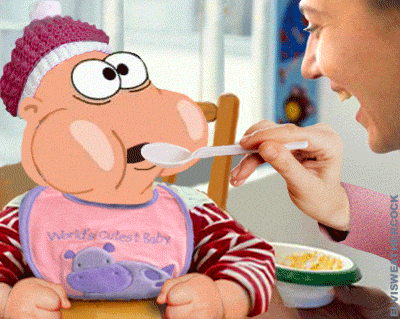
-
- Follow-on-milk is often marketed for babies over 6-months old.
- However, follow-on-milk has no proven benefits over stage 1 formula.
- Only stage-1 formula should be given to a baby under 6-months of age, follow-on formulas are not suitable.
Get the milk temperature right.
-
- It’s recommended that baby milk be warmed to 37°C. Don’t overly stress about getting this perfect temperature. Don’t serve it hotter or you may risk burning your baby’s mouth.
- You can simply test the temperature on your wrist. But how is a new dad meant to know what 37°C milk feels like on their wrist?
- When you drip the milk onto your wrist you almost shouldn’t feel any change in temperature.
- Some parents gradually reduce the temperature of milk so that their baby is comfortable with the milk at room temperature.
Let your baby hold their bottle while feeding.
-
- At Between 6 to 10 months old, most babies begin holding their own bottle.

- Letting your baby hold the bottle when they show signs they are ready is a wise idea as it may be harder to introduce this at later stages.
- At Between 6 to 10 months old, most babies begin holding their own bottle.
Don’t throw out old bottles.
-
- When your little one starts drinking more, if you have smaller bottles that don’t hold enough, Don’t get rid of the bottles.
- When your child begins weaning and they begin having less milk, those bottles can be used again. And smaller bottles are easier for your baby to hold themselves.
- Old bottles are also good for making DIY shakers.
Try not to obsess over sterilising.
-
- Sterilising is important and you should follow guidelines, but it is not something to stress over.
- Always sterilise in advance so you have a clean bottle ready.
- Milton Wipes are handy for when out-and-about in case something is dropped on the floor.
Create a system for washing and sterilising.

-
- Sterilising bottles can take some time to get into the habit off.
- Set a routine of washing up bottles and when the steriliser goes on.
- Only have the number of bottles you use per day in the steriliser.
- If you give a different amount of milk at different times of the day, use different colours bottles to easily identify the volume.
Rinse used bottles out with water as soon as you can.
-
- Rinsing the bottles sooner will give the milk has less time to solidify and stick to the bottle, making them easier to clean later.
Mistakes New Dads Make About Bottle-Feeding & Breastfeeding
Mistake 1: Thinking that breastfeeding is easy.
-
- For some mums, breastfeeding comes easy but don’t let that lead you to believe that the same is true for every mother and baby.
Mistake 2: Not changing to faster flow teats.

-
- As your baby grows they’ll be able to suck more efficiently from the bottle.
- Milk bottle teats are designed to allow the flow speed to match your baby.
Mistake 3: Risking how long milk is left out.
-
- If it’s more than the recommended time, it’s simply not worth the risk. Make up a fresh bottle instead.
Mistake 4: Believing that breastfeeding is a natural form of birth control.
-
- Though there is some truth behind this, there are a number of factors that contribute to this, such as how regular breastfeeding is, how long since the birth, whether your partner has started having her period again.
- Also, some contraceptives can’t be used while breastfeeding. Birth control isn’t just your partner’s responsibility.
Mistake 5: Using bottled water for formula feeds.
-
- It’s not usually sterile and can contain too much salt or sulphur.
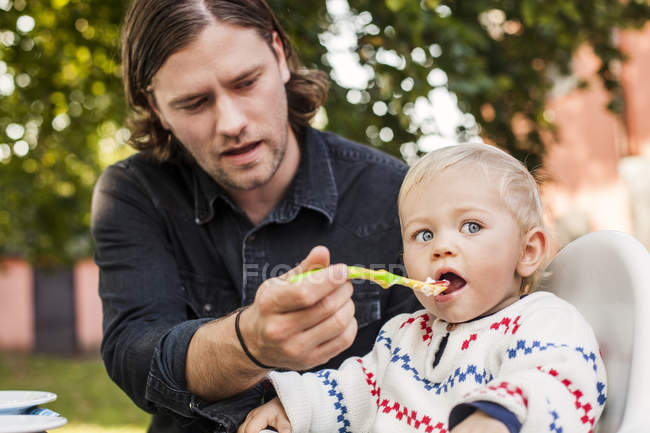
- It’s not usually sterile and can contain too much salt or sulphur.
What No One Tells New Dads About Feeding
Breastfeeding is difficult for many new mums.
-
- It can take some newborns time to learn to latch. It’s can cause stress and anxiety for mums (and dads also).
- The first milk that new mums produce, called colostrum, may need to be given via a feeding syringe.
By 6-weeks old, less than a quarter of UK babies are exclusively breastfed.
-
- While only 55% of babies are combination fed of formula and breastmilk at 6-weeks.
- Only 1% of babies are exclusively breastfed at 6-months of age in the UK.
Your baby might Cluster Feed.
-
- Cluster feeding is when a baby requires feeding roughly every 20 minutes.
- It can be tough for new mums as it leaves them will little time to rest or do anything else. Leaving the house for long periods of time is difficult.
- This can come in phases, that might last a few weeks at a time.
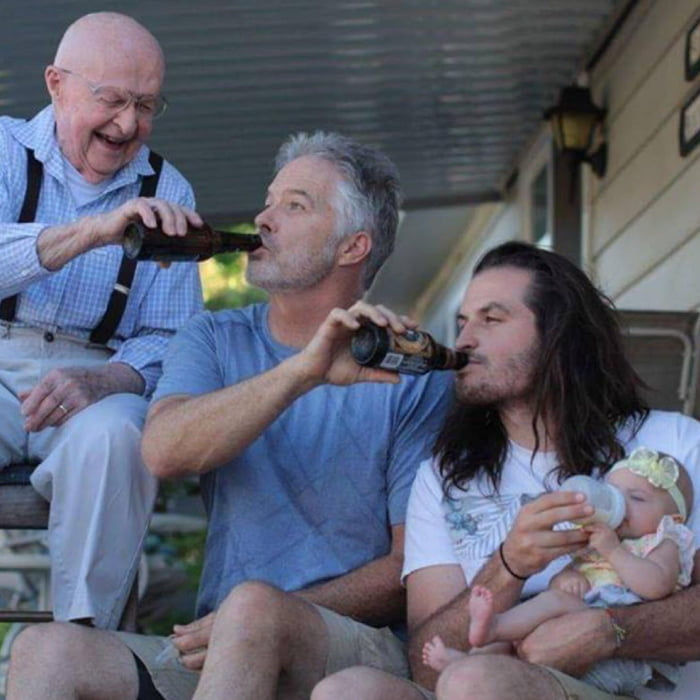
Exclusively breastfed babies should have a vitamin D supplement.
-
- Breastmilk alone will not provide enough vitamin D for a baby.
- The NHS recommends a daily vitamin D supplement for breastmilk-only babies.
- Formula contains vitamin D, so no supplement is needed if your baby is combination fed or formula-fed.
You can’t introduce a bottle to a breastfed baby until later.
-
- The latch and sucking motion a baby uses for the breast and bottle are very different.
- A baby needs time to develop an effective latch to the breast, usually around 4 weeks.
Your newborn baby might develop a blister on their top lip.
-
- It’s common, isn’t painful for the baby and there’s no need to worry about it.
Not all babies will spit-up.
-
- Though it’s common for babies to spit-up after every feed, some babies will do so very rarely.

- Often when they do spit up, it won’t be a huge amount.
- Keeping your baby still and in an upright position can help reduce spit-up.
- Also, note that spit-up is not the same as vomit.
- Though it’s common for babies to spit-up after every feed, some babies will do so very rarely.
You shouldn’t use the microwave to warm milk.
-
- It can cause hotspots and may burn your baby’s mouth.
Burp your baby when necessary.
-
- You may need to stop midway through to burp your baby. When they ease off slightly is a good time to burp mid-bottle.
Some new dads help by syringe-feeding expressed breastmilk.
-
- If your baby has trouble latching in the early stages, dads can help by feeding breastmilk through a feeding syringe. This is done while they latch on dad’s finger (clean hands are a must).
- Note that a bottle can’t be used early on, because the latch a baby needs for the nipple is different from a bottle.
- Consult your healthcare visitor or a lactation consultant before using this method.
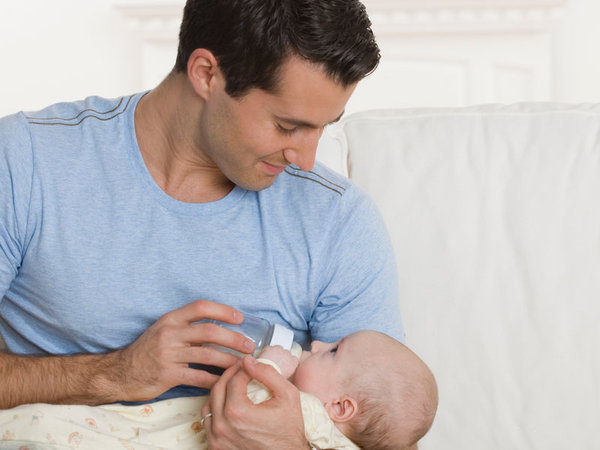
Baby Feeding Progress: How Much Milk Should My Baby be Drinking?
-
- The amount each baby will drink will vary and the below chart should be guidance only.
- Babies will likely go through phases where they drink more or less milk.
- Our little one went through a phase of having well above the recommended amount, then a week later had a phase lasting a few weeks where she drunk under the recommended amount.
- Feeding-on-demand can help you understand how much milk your baby needs.
- If your baby is finishing their feed and still seems hungry, begin gradually increasing the amount of milk.
| Amount of milk per feed: | Number of feed: | |
| Newborn | 60 to 90 ml | Every 3-4 hours |
| One month | 120 ml | Every 4 hours |
| Two months | 120 ml | 6 to 7 feedings per 24 hours |
| Four months | 120 to 180 ml | 6 feedings per 24 hours |
| Six months | 180 to 240 ml | 5 feedings per 24 hours |
| One year | 240 ml | 2 to 3 feedings per 24 hours.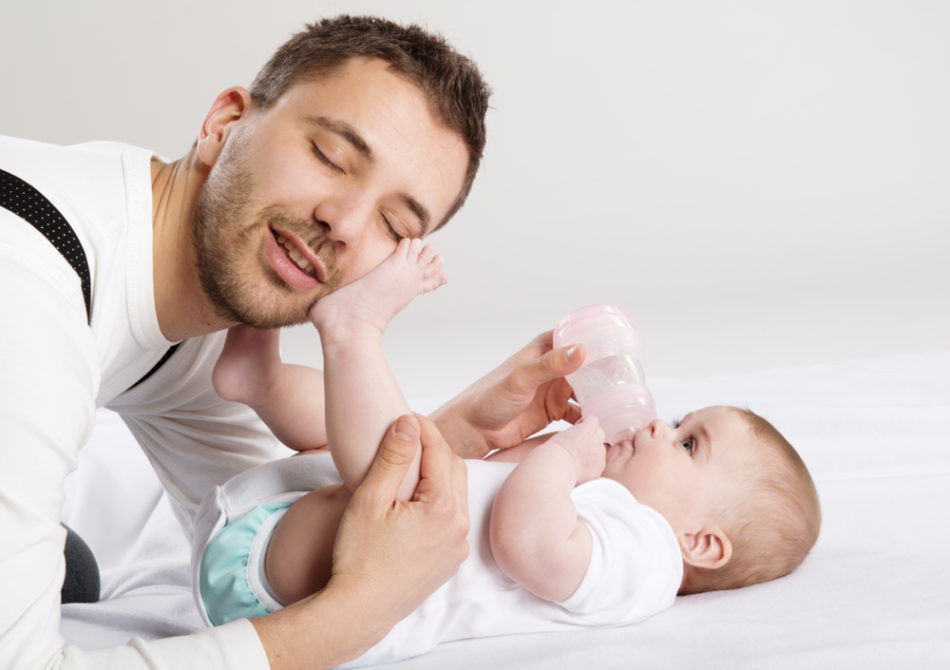 |
Health and Safety for Feeding Your Baby
-
- Your baby will lose weight within the first week after birth. But your baby ideally needs to make their birthweight back before they reach two weeks. In the UK, your baby will be weighed at their two-week check-up.
- Only breastmilk and stage-1 formula milk should be given to a baby under 6-months.
- Cow’s milk should only be introduced to your child at one year.
- Avoid all other milk types for a baby under one year.
- Wash your hands before making up feeds and feeding your baby by bottle.
- Follow sterilising guidelines and recommendations.
- Always check the temperature of milk before giving it to your baby.
- Do not add anything else to the milk.
- It’s possible for a baby to have an allergy to formula, speak to your GP if you think this could be the case. They can help recommend specialist infant milk alternatives.
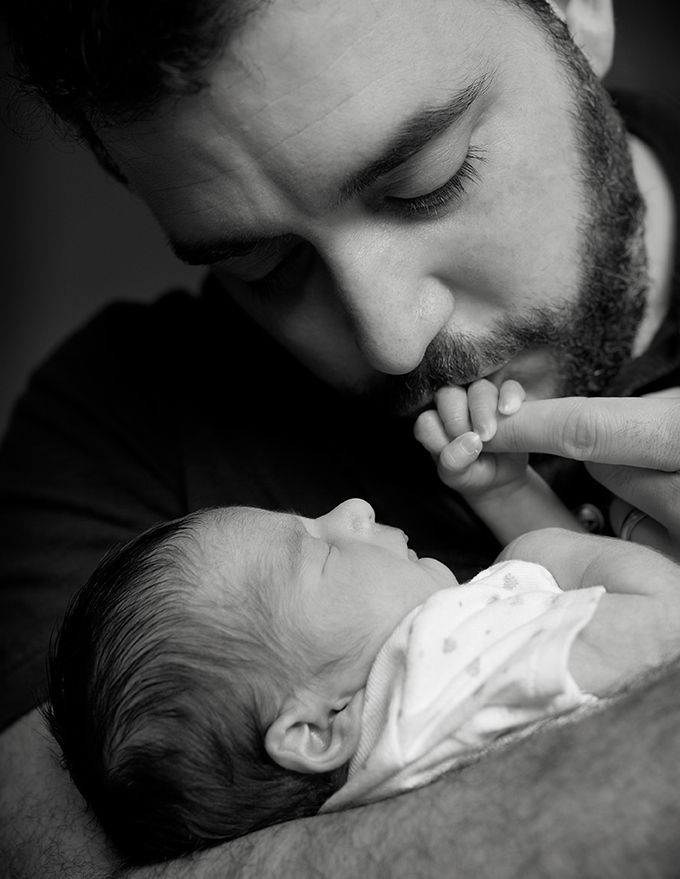
- Put a label with the date on stored breastmilk, so you know when it needs to be used by.
Baby Feeding Equipment Checklist
The equipment you need for feeding your baby will depend on whether your baby is exclusively breastfed or not. However, the figures suggest that at some stage your baby will need to be bottle-fed, so dads should be prepared for it.
Must-Have Feeding Equipment
- Bottles
- Bottlebrush
- Keep this for washing-up bottles only
- Steriliser
- Electric or microwave
- Stage 1 Formula
- Even if you plan to breastfeed, I’d recommend having some formula just in case things don’t got to plan
- Breast Pump
- Breastmilk freezer bags
- Nursing pillow
- Bibs
- You need a lot of these, as once they’re used, they need to go in the wash before used again
- Muslin/Burb clothes
- Travel container for formula
Nice-to-Have Feeding Equipment
- Bottle warmer
- Perfect prep machine
- Microwave sterilising bags
- When you travel these make sterilising easy, but they’re also nice to have in the cupboard as a just in case.
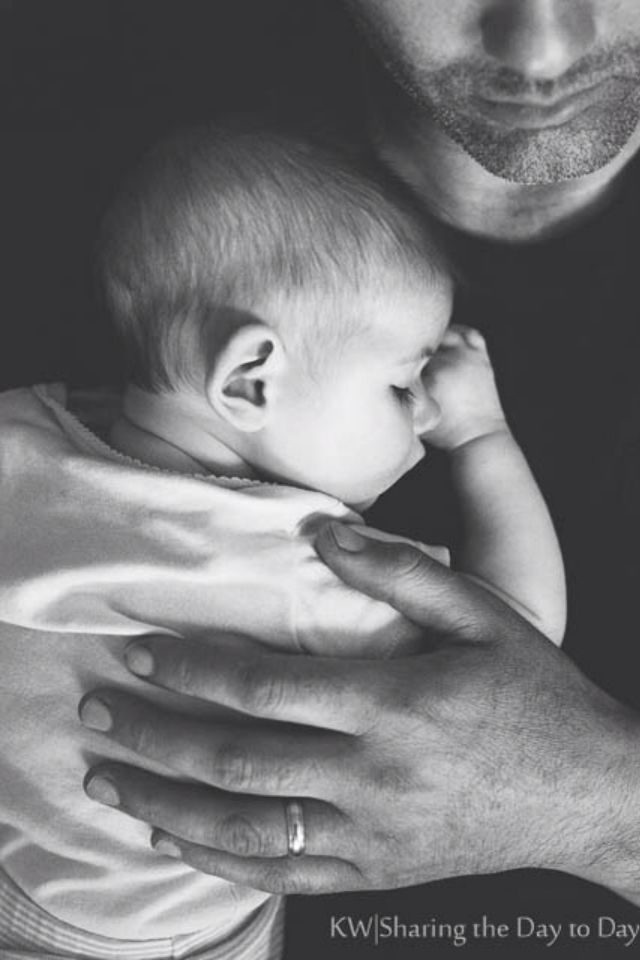
- When you travel these make sterilising easy, but they’re also nice to have in the cupboard as a just in case.
- Smart kettle
- Smart kettles that connect to an app on your phone via Wi-Fi or Bluetooth keep the water at a set temperature. Handy to always have on hand for to make up formula
- An arm chair
- A comfy armchair will make all the difference
- Feeding whether breast or bottle can be a literal pain in the back and neck
- Comfy arms on the chair help support the weight of the baby in your arms
- Insulated bottle carrier
- Get one that can fit more than one bottle, this way you can put an ice block in with the bottle to make it last longer on days out.
- Travel bottle-warmer flask
New Dad’s FAQs About Feeding & Breastfeeding
How do I know my baby is getting enough milk?
The number of wet and dirty nappies help indicate if your baby is getting enough milk.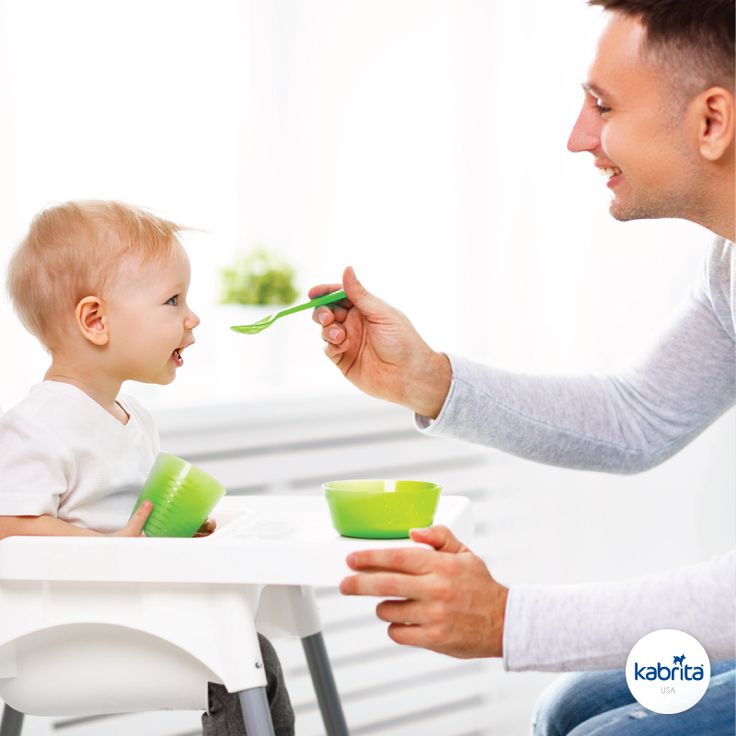
At least 6 wet nappies a day should be expected.
Weight gain is also a method to know if your baby is drinking enough milk.
How can a dad tell their partner they should stop breastfeeding?
You probably shouldn’t. When to stop breastfeeding can be a very difficult decision for a mum, it’s a special bond between her and her baby.
If you are concerned that your baby isn’t getting enough milk from breastfeeding, then you need to gently approach the subject with your partner.
How do I test the temperature of my baby’s milk?
Drop a few drops of the baby’s milk on the inside of your wrist, you shouldn’t feel a change in temperature on your wrist.
How long can formula milk be left out for?
Room temperature: two hours
Fridge: 24 hours
Cool bag with ice pack: four hours
How long can breast milk be left out for?
Room temperature: 4 hours
Fridge: one week (back of the fridge where it is coldest)
Freezer: six months
Always use a sterilised container suitable for expressed breastmilk.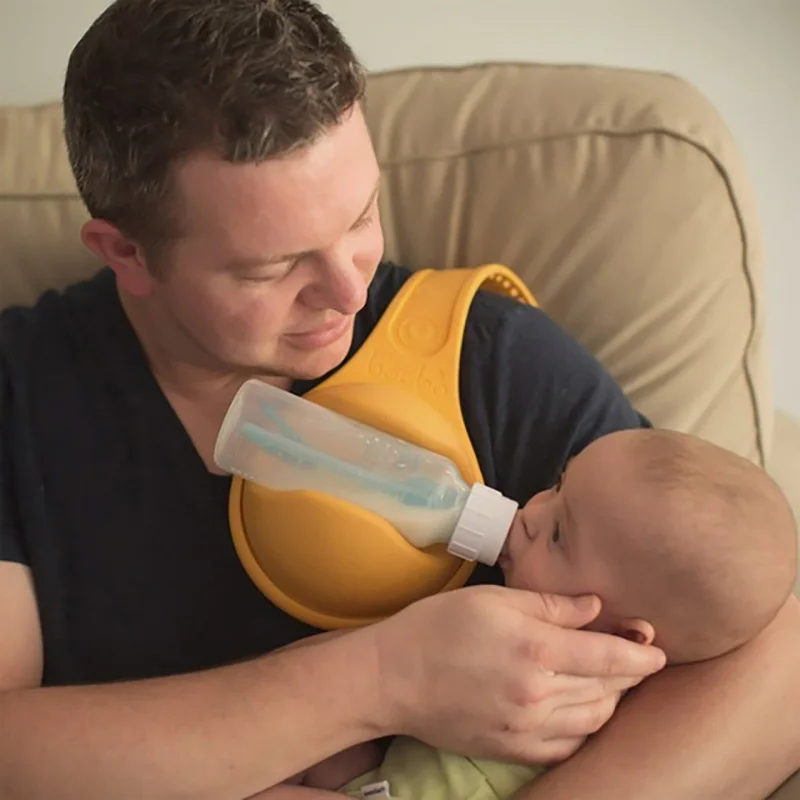
Will giving formula help baby sleep better?
Maybe.
Trial it and see how things go—no harm in switching back to breastmilk if not. But, as I’m sure mum knows, she’ll have to pump to maintain her supply of milk.
Also, a bottle shouldn’t be introduced before roughly 4 weeks. This gives ample time for the baby to latch effectively and the milk supply to develop.
Learn more sleeping tips for new dads
When can you stop giving a baby milk in bottles?
Begin thinking about transitioning from teat bottles to a cup when your child reaches one-year. A cup can be a sippy-style cup or an open cup if your child is able to drink from one.
5 Things for Fathers in Your Inbox Every Friday
Get Brilliant tips, studies, quotes, thoughts, products or activity ideas that will help make you a better dad
Does Bottle Feeding Really Promote Bonding with Dad?
It is really common these days when discussing breastfeeding in the antenatal for mums-to-be to say “I want to breastfeed but I want to start pumping early to let dad feed and bond with baby too. ”
”
So, is it essential to put your breast milk in a bottle as soon as possible so you can help your partner bond with their baby...
Share this content
Let’s Start with What Makes Breastfeeding Different
This blog is here to get the facts straight on this one! It’s always essential to have the real facts so that we can all make an informed decision about anything.
Does bottle feeding help dads bond with their new baby? Yes… and no… This is a tricky blog!
Bottle feeding is never going to be as beneficial as feeding directly from the breast; our bodies have been designed over millennia to have evolved to be perfect for our newborns mouths.
Feeding directly from the breast helps our baby’s eyesight develop by strengthening the muscles inside the eye. Think about it, every time you breastfeed, your baby looks lovingly into your eyes. Babies will always search out their mum’s eyes for communication and love.
When we breastfeed, we will often feed off different breasts, left or right, and even sometimes in different positions. This causes your baby to look in different directions for your face and to seek eye contact with you.
If we compare this with bottle feeding, most of us (if right-handed) will feed our baby with the bottle in our right hand for every feed. This way baby is nearly always looking at you from the same position. This is why experts recommend that babies who are bottle fed are held in a variety of positions and fed with our left and right hands.
Feeding at the breast also helps to shape our babies’ mouths, palates and jaws. It helps to bring in better aligned teeth, as well as helping with future speech development.
Of course, genetics has a role to play here as well, so breastfeeding your baby is more likely to spare you orthodontic fees later on, but it is not guaranteed!
The other thing which is important to note is that babies are perfectly adapted to regulate how much milk they drink during breastfeeding, once they are full they stop.
With bottle feeding, sometimes it’s not so easy for them, especially if we want them to drink a certain amount or have spent time expressing our precious milk and we do not want to see 30mls go to waste!
Not All Bottle Feeding is Created Equal
Pace feeding is recommended when bottle feeding; this is when we feed our babies in a more upright position which is comfortable for them and you. Then, we watch and listen to baby’s cues which show us when they are full. This is true even if, occasionally, they may leave some milk in the bottle!
This helps to better mimic breastfeeding, because we know that babies do not take the same amount at each feed. Some breastfeeds will be small amounts while others are like a huge three course meals!
But, What About Bonding?
Research shows us the differences between bottle feeding and breastfeeding, but, what about when it comes to bonding?
Hmm… well the reason I answered the initial question with a yes and no is because of course we can bond with our babies if we bottle feed.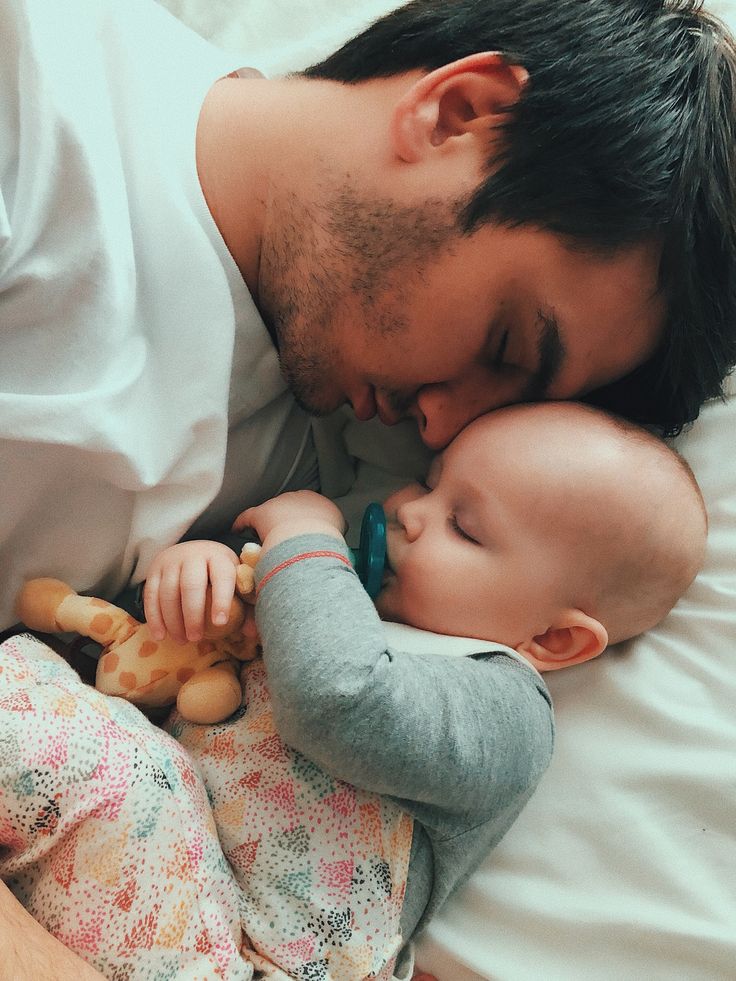 There are many mums who need to feed their baby with a bottle and they bond beautifully and lovingly with their bub.
There are many mums who need to feed their baby with a bottle and they bond beautifully and lovingly with their bub.
But the no side of the argument is when bottle feeding is seen as the ONLY way your partner can bond with their newborn. This is incorrect.
Bonding is About More Than Just Bottle Feeding
Our partners can bond with their newborn in numerous ways which do not interfere with the breastfeeding.
Remember from our other blogs how important the first month is to establish a good milk supply and how it often takes at least 6-8 weeks to feel confident with breastfeeding.
If we are expressing and bottle feeding can be an exciting, beautiful time. It can also be a bit overwhelming as you try to get everything off to a good start.
Our partners can bond through just as meaningful activities with baby; bottle feeding is not the only way to bond. Often, an extra pair of hands to bottle feed the baby does not provide a new mum with extra sleep or help.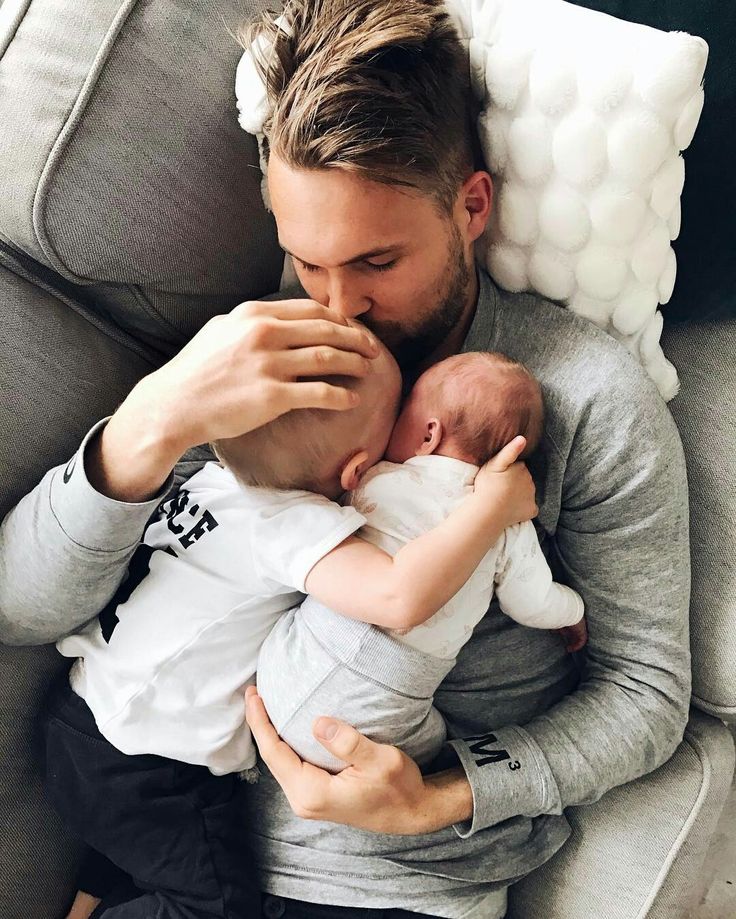
After all, our breasts will still need to be expressed as they’ve gotten used being fed from regularly! There are usually many more tasks a new mum could be given a hand with which provide her with extra rest!
Here are some other ways to promote daddy baby bonding…
Skin to Skin Contact
It is one of the most gorgeous ways to bond with your baby… and it’s not just for mums!
When you hold your baby next to your warm skin, baby can hear your heart beat, snuggle into your chest (whether hairy or not for dads!) and smell your scent.
Babies prefer the real smell of you, so don’t go too heavy on the deodorant on perfumes. Skin to skin contact can be done anytime; watching the TV, reading, listen to music, dancing to music.
Every time you hold a baby like this we are drawn to look at them and them to look up into our faces. This promotes lifelong bonding and encourages the release of huge amounts of the love hormone, oxytocin.
The other thing skin to skin contact does is reduces stress hormone and helps babies to drift off into la la land and sleep well.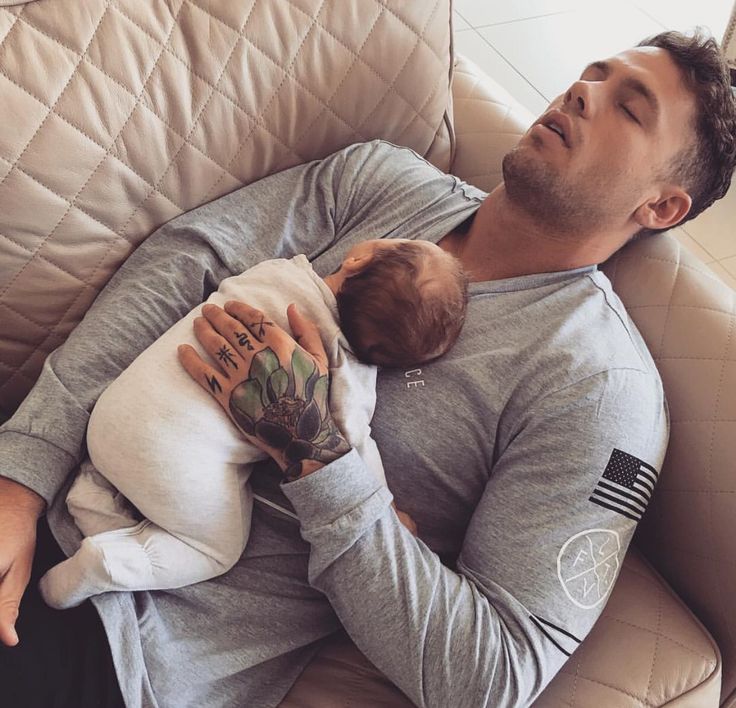 Now if that isn’t a good excuse to promote it, I don’t know what is.
Now if that isn’t a good excuse to promote it, I don’t know what is.
Bathing Baby
Similar to skin to skin contact, this is a really enjoyable thing to do for bub and your partner. Babies love to hear your voice, so being in the bath is the perfect time for dad to try out his singing voice! As baby gets older dad will probably get a giggle from bub every time he starts singing!
Reading to Baby
This may seem silly as babies cannot understand what you are saying but they do recognise voices and the intonation in our voice. Your partner could be reading the news on their phone out loud to baby, it wouldn’t matter baby would still be enjoying it.
Get your partner to try changing their voice to be more babyish and “sing-song” and baby will soon be looking up at dad avidly hanging on every word, even if it’s the business review!
Going Out for Walks with Baby
This is a lovely activity for everyone, but can also give you some precious time alone to have a bath, sleep an extra hour or just sit on the loo in peace!
Fresh air is something we take for granted but can make everyone feel better mentally and physically.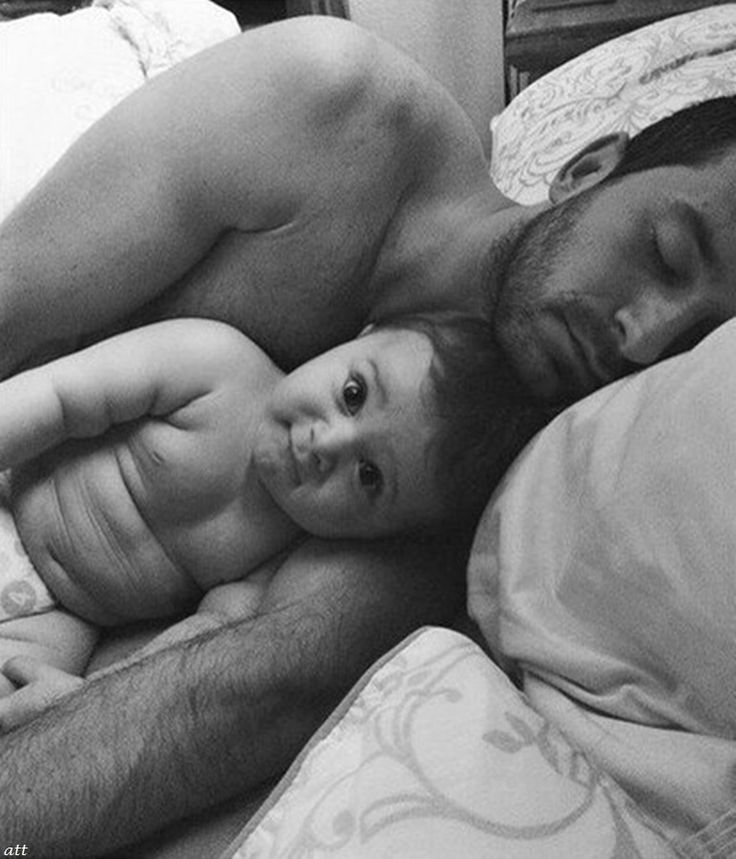 Being outside with your baby promotes relaxation, better sleep for baby, and is absolutely a bonding exercise.
Being outside with your baby promotes relaxation, better sleep for baby, and is absolutely a bonding exercise.
As you can see in the first few weeks it’s important to allow you and baby to get into the swing of things with breastfeeding. This will not be a detriment to your partner being able to bond with baby.
There are numerous opportunities for you both to bond with bub. Remember bonding is an ongoing love that keeps on growing and strengthening over time.
Only you, your partner and your baby know what’s best for your family. Just make sure you always get all the facts first so you feel happy in your decision… whatever that is.
What activities does your partner use to bond with the baby? How would you describe your breastfeeding journey? Let’s have a chat, here or on the Medela Australia Facebook page.
dad pretended to be mom to feed the baby
Paternity
Sometimes breastfed babies need to be bottle fed with expressed milk.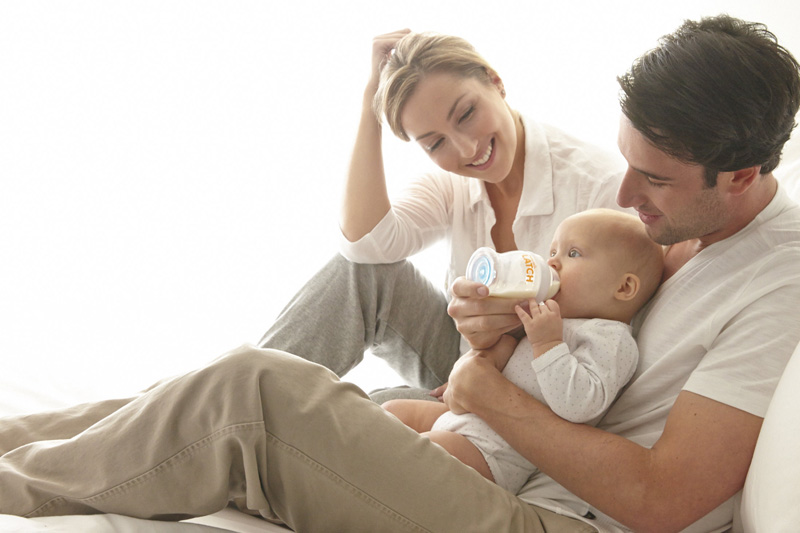 And those who do this may have some difficulties, because the child wants breasts and mom, not a bottle and dad. You can’t explain to a kid that his mother is sleeping or has gone to the doctor, and his conscience will not allow him to leave hungry.
And those who do this may have some difficulties, because the child wants breasts and mom, not a bottle and dad. You can’t explain to a kid that his mother is sleeping or has gone to the doctor, and his conscience will not allow him to leave hungry.
Screenshot of SWNS/Youtube
#0-6 months
#7-12 months
#parents
#GV
#IV
In such circumstances, many men rush to return the baby to the mother with the words: "He did not eat, try you." Fortunately, there are resourceful people who do not give up under the yoke of circumstances.
Briton Irwin Mavromara faced a difficult task: his 11-month-old daughter named Celine did not want to drink from a bottle. The girl was breastfed, and her dad's attempts to give her a pacifier did not impress her. nine0003
Related topics
Between breast and bottle: explaining how easy it is to feed a baby with expressed milk
According to The Daily Mirror, Irwin was a member of a Facebook dads community whose members also experienced similar problems.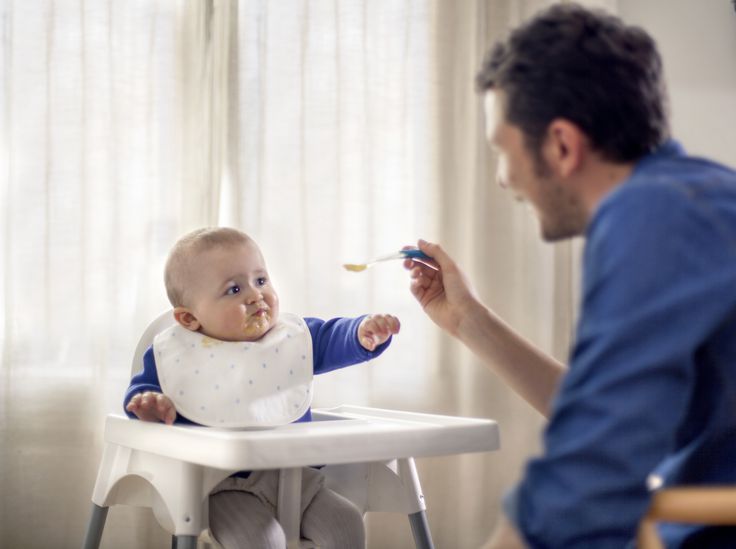
Celine found the disguise convincing and ate, and the video with the nursing father got into the media.
The mother of the baby, Rania, commented on the situation as follows: “I was both pleased and sad that they replaced me with my photo, but it gave me time to do household chores. nine0003
Our daughter has been a bit worried about separation lately and she only calms down when I hold her and feed her, so we tried to use my photo so I could have a moment for myself. I find this story amusing! Many moms I know have said they wish they had a trick like this when they were breastfeeding.”
Sometimes not only dads do tricks with nipples, but also moms: this woman came up with a way to feed a baby from a bottle, so that he was sure that he was suckling at the breast. And she had to show ingenuity because the child was categorically against curtailing breastfeeding.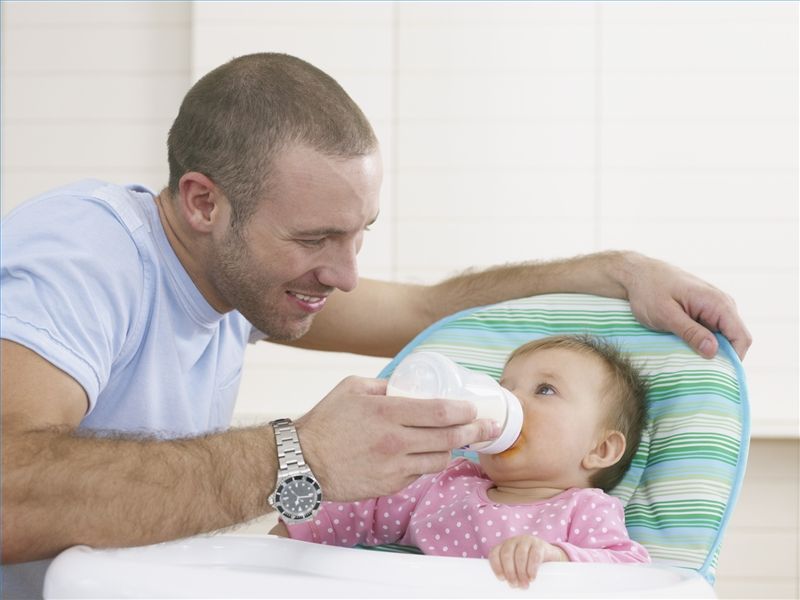 nine0003
nine0003
NES course
#0-6 months
#7-12 months
#parents
#GV
#IV
YOU WILL BE INTERESTED
Likbez Trolling together: David Tennant and his cheerful family
Opinions Mother's Day, which is always with you. Column about the last Sunday of November
Opinions Stay human: a column about children, parents, humanity and laws
Opinions Be in touch with yourself and with your own Olivier
Interview “I started to blame myself and think that maybe I shouldn’t have sent him there.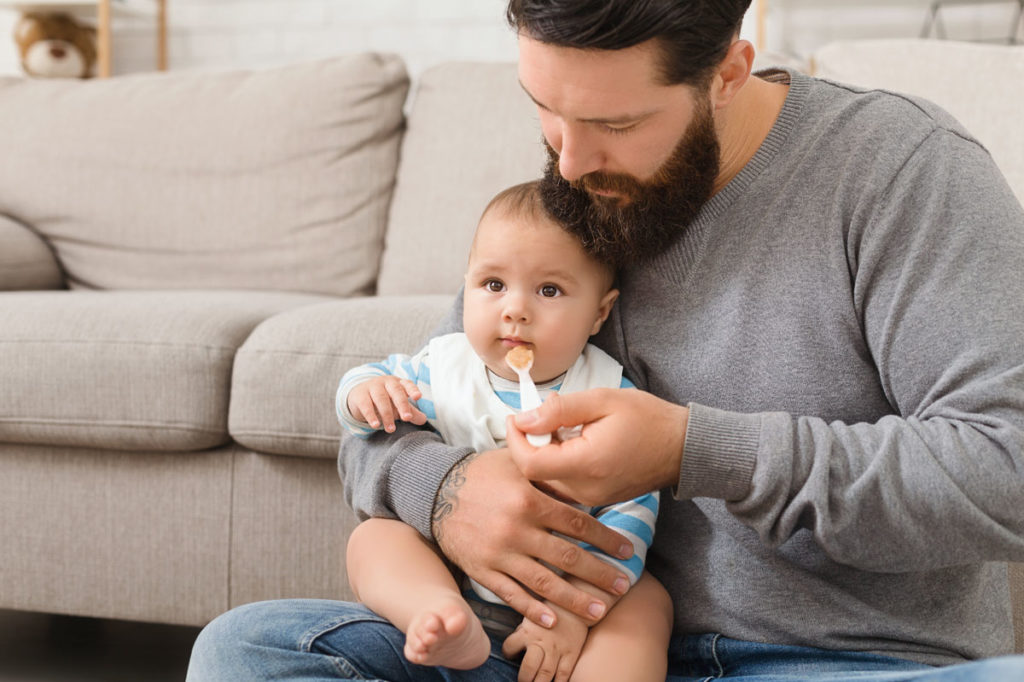 ” The stories of three women whose husbands were mobilized
” The stories of three women whose husbands were mobilized
In September, partial mobilization was announced in Russia, as a result of which 222,000 men received subpoenas. Nan spoke to three...
News Anti-toy: psychologist and lawyer called Huggy Waggi "an image of ruthless evil"
Likbez "Women, Life, Freedom". Who and why supports the protesting women of Iran
News Britney Spears' ex-husband decided to write a book about fatherhood
News In the Novosibirsk region, a deputy knocked down a six-year-old child and left the scene of an accident
A man faces a year in prison.
life hacks Floating candles and sweets "Kiss of the Dementor": ideas for a holiday in the style of Harry Potter
How dad breastfeeds - Alina Markova - Children - Site materials - Snob
Three kilos of ripe cherries, a newborn daughter on my chest and a happily smiling husband - this was my world for the first time after giving birth. “Our daughter doesn’t need anything but your breasts!” the husband said, and this helped a lot morally. And the fresh cherries that he brought every day - physically. In the UK, the government, together with the Institute of Paternity, decided to involve fathers in the process of breastfeeding by adding an information booklet to the starter package for pregnant women and promoting exactly this scheme - nothing but breastfeeding for newborns. nine0003
“Our daughter doesn’t need anything but your breasts!” the husband said, and this helped a lot morally. And the fresh cherries that he brought every day - physically. In the UK, the government, together with the Institute of Paternity, decided to involve fathers in the process of breastfeeding by adding an information booklet to the starter package for pregnant women and promoting exactly this scheme - nothing but breastfeeding for newborns. nine0003
Instructions for fathers provide information on the mechanisms of breastfeeding and how to support a new mother. A campaign to educate fathers about breastfeeding is not an attempt to educate anyone. This is a completely pragmatic struggle for the health of the nation - the same as the fight against alcoholism, drug addiction and smoking.
Formula-fed babies are twice as likely to suffer from so-called sudden infant death than breast-fed babies. nine0003
Breastfeeding reduces the risk of infections and sepsis, key causes of early childhood death. In addition to reducing immediate threats to life, breastfeeding (for more than six months) affects mental development - such children are less likely to develop autism, 20% more likely to receive higher education and perform better in school.
In addition to reducing immediate threats to life, breastfeeding (for more than six months) affects mental development - such children are less likely to develop autism, 20% more likely to receive higher education and perform better in school.
Mother's milk continues to influence a person's life after school. It's hard to believe, but if you were breastfed as an infant, you're less likely to be overweight as an adult. The whole world is struggling with high cholesterol in adults, and if mothers breastfed them as children, their cholesterol levels would be 10% lower without any pills. Cancers, such as leukemia, are also less likely to occur in breastfed women. nine0003
Breastfeeding also affects a mother's life. Each year of breastfeeding reduces the risk of breast cancer by 4.3%. If a woman breastfed her children, then without special exercises and diets, she is more likely to be in better physical shape, and her waist will be thinner - simply because lactation is an expenditure of 500 calories per day.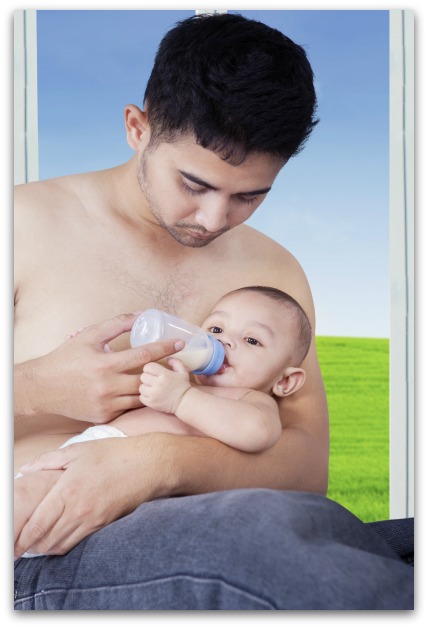 Women who have breastfed their children for more than two years are a quarter less likely to suffer from cardiovascular diseases, and this is the main cause of death in developed countries. nine0003
Women who have breastfed their children for more than two years are a quarter less likely to suffer from cardiovascular diseases, and this is the main cause of death in developed countries. nine0003
The trouble is that the mother herself often cannot defend her right to breastfeed (after all, this takes her away from both her career and family life), she cannot cope with this hard work. For many decades, breastfeeding was neglected, as it was believed that a woman has more important things to do than motherhood. Promotion of feeding according to the regime - for the convenience of the nurse's work schedule - led to insufficient stimulation of milk production. The pacifier satisfies the sucking reflex of the baby and at the same time accustomed to the wrong grip on the breast. The baby sucked incorrectly or refused the breast altogether. Feeding failed. The child was given to nannies and fed artificially. Formula manufacturers claimed that their product was no worse than mother's milk - which is absolutely not true: the mixture is as similar to breast milk as a plastic prosthesis is to a real limb. The mixture will help to survive in the absence of breast milk, nothing more. nine0003
The mixture will help to survive in the absence of breast milk, nothing more. nine0003
Today, when there are official recommendations from WHO and UNICEF in this regard, in a house where there is a baby, you can see the following scene: a nursing woman, comfortably sitting in a chair with a baby, “does nothing” - watches movies, reads books, chats on the phone, and a tired husband is spinning, fulfilling her wishes - he brings food, a blanket or a cup of fresh tea. And if a man knows how important breastfeeding is for his family, then he is not offended by such “inequality”. He will be able to support a woman when a lactation crisis occurs - the child “hung on her chest” and sucks milk for herself all day and night, because she is growing. Remind me that this is normal and will pass soon. He knows that for the production of prolactin - the hormone of lactation - feedings are needed at night, and will not offer the child a pacifier and a bottle. He will tell the mother how to convince herself that "there is enough milk.


